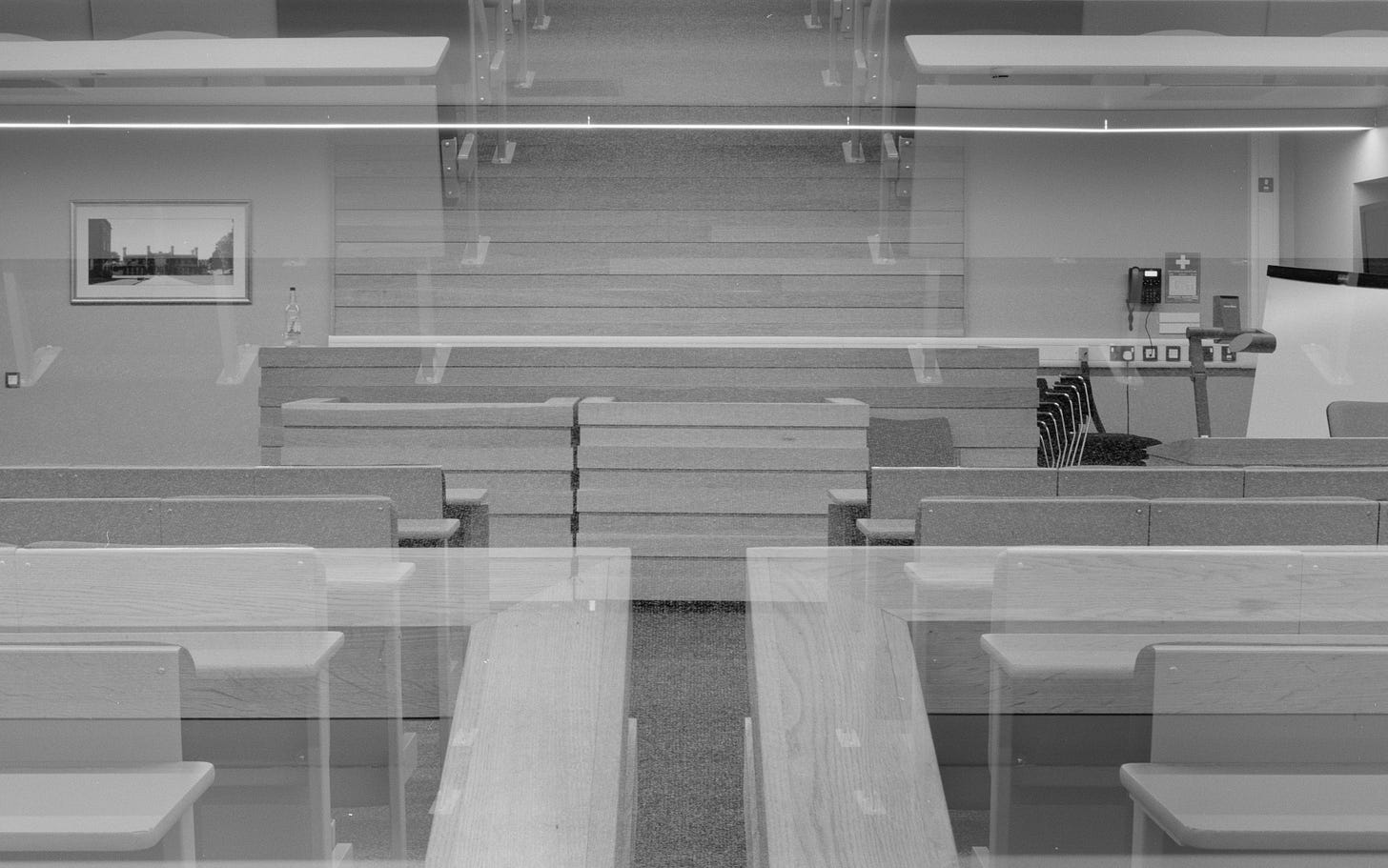[Photo credit: Mike Downing & Adam O’Meara]
It comes upon you, every time you are confronted with the structures that make up your life. This dizziness, this feeling of the floor both receding and too close. Images of thick tangled wires at the base of your head. The same words: rats, torsion, flex, screen.
You enter. Around you and in front rise up tall, slick, brick walls, all at angles. Like Jennifer Connolly in the film (for you are in a labyrinth, of course), you say out loud: ‘how hard could it be?’
Turn left.
•••
You’re in a seminar room, sitting on the floor. You are the teacher and today you are here to talk about something. Your students look down from their chairs as you explain that you can’t teach from their level because it is too far off the ground. The carpet is pitching this way and that and there’s another thing, a felt quality that you find it difficult to describe, a sense, each time, that you have reached your brain’s absolute endpoint. Images of severed fizzing wires, of rats running towards electric fences, of metal balls tilting around square games. The phrase ‘eye threads’.
You carry on teaching.
During this time, whenever you step on to the campus where you work you become suddenly, precipitously dizzy. Though there is no official diagnosis, it seems that you are suffering from site-specific labyrinthitis: an ‘inflammation of the [...] maze of fluid-filled channels in the inner ear’, the NHS website tells you. It can result from an ear infection but, in your case, its causes don’t seem to be physiological. Instead, it appears that your body has manifested the exact symptoms for your ongoing and increasing malcontent with academia, and your place within it.
•••
You walk to the lecture theatre. The metal stair rail is the only certainty in your sensorial field but you try not to grip too tightly, lest anyone notice how dizzy you are. You stand outside the white door, watching the geometric concrete blocks of the 21st century university unhinge and reorganise, as students pool and chatter behind you. Tetris, you think. Escher. Restructuring. These thoughts seem the right amount of obvious – lazy references for a brain that can’t make better thoughts happen, now.
•••
Turn left.
•••
To be initiated into the language of academia is to be initiated into the language of orientation and to feel yourself more, or less, aligned with this language. Entering into academia, we enter into its promises, we proceed down a certain path, we invest in a direction. As Sara Ahmed tells us: “The longer you proceed on this path the harder it is to go back [...]. You keep going out of the hope that you are getting somewhere” [Queer Phenomenology, 18]. When you embarked upon academia, you had this hope, this sense of a direction unfurling ahead. Now, you don’t know where you are.
Hi friends,
Thanks so much for reading these first words of ‘the wandering’. I’ll be publishing new writing here fortnightly to every three weeks, with more labyrinth writing, and other things, coming soon. I’d love to hear what you think about it, and what you’re thinking about in general – please feel free to leave any comments below.
You can find out more about the work I do to support female / trans / non-binary academics here.
I also offer creative mentoring for anyone who would like more ease in their creativity - however it manifests. Find out more here.
Find out more about my current workshop offerings here.
I have an ongoing professional tarot practice. If you’d like me to read for you, get in touch.


I read this forward (top to bottom), backwards (bottom to top) in paragraphs, like a film being played forwards/backwards. Then I read the whole thing backwards word by word. Reaction reading this? 1) Panic then relief that I retired a couple of years early. 2) I have no idea how I managed to survive 38 years with that kind of pressure. 3) Disbelief and sadness that I went into it in the first place. Glad it's over.